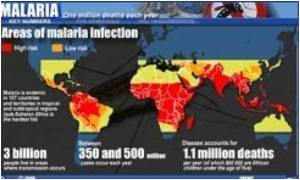
Senior author Flaminia Catteruccia said that their study is the first to reveal the evolutionary dynamics between the sexes that are likely responsible for shaping the ability of Anopheles mosquitoes to transmit malaria to humans.
Anopheles mosquitoes are the only mosquitoes capable of transmitting human malaria, however, the species within this genus vary widely in their ability to do so, for reasons that remain unknown.
The researchers analyzed nine globally dispersed Anopheles species, enabling reconstruction of the evolutionary history of their reproductive traits and capacity to transmit malaria.
They found that two key male reproductive traits in Anopheles are acquired and evolved together over time, that is, transferring ejaculate as a gelatinous rod-shaped structure called the mating plug, and the ability to synthesize a steroid hormone contained in that plug called 20-hydroxyecdysone (20E).
The researchers also demonstrated that the evolution of these male traits drove reciprocal adaptations in females strongly linked to the mosquitos' capacity to transmit malaria.
The findings may also be applicable to Dengue and West Nile virus, which are transmitted by the Aedes and Culex mosquitoes, respectively. In these species some aspects of reproductive biology are similar to Anopheles.
By identifying factors critical for increasing the ability of mosquitoes to transmit malaria, compounds developed to specifically target those factors could be incorporated into existing mosquito control technologies, boosting their overall effectiveness.
The study appears in Science.
Source-Medindia













